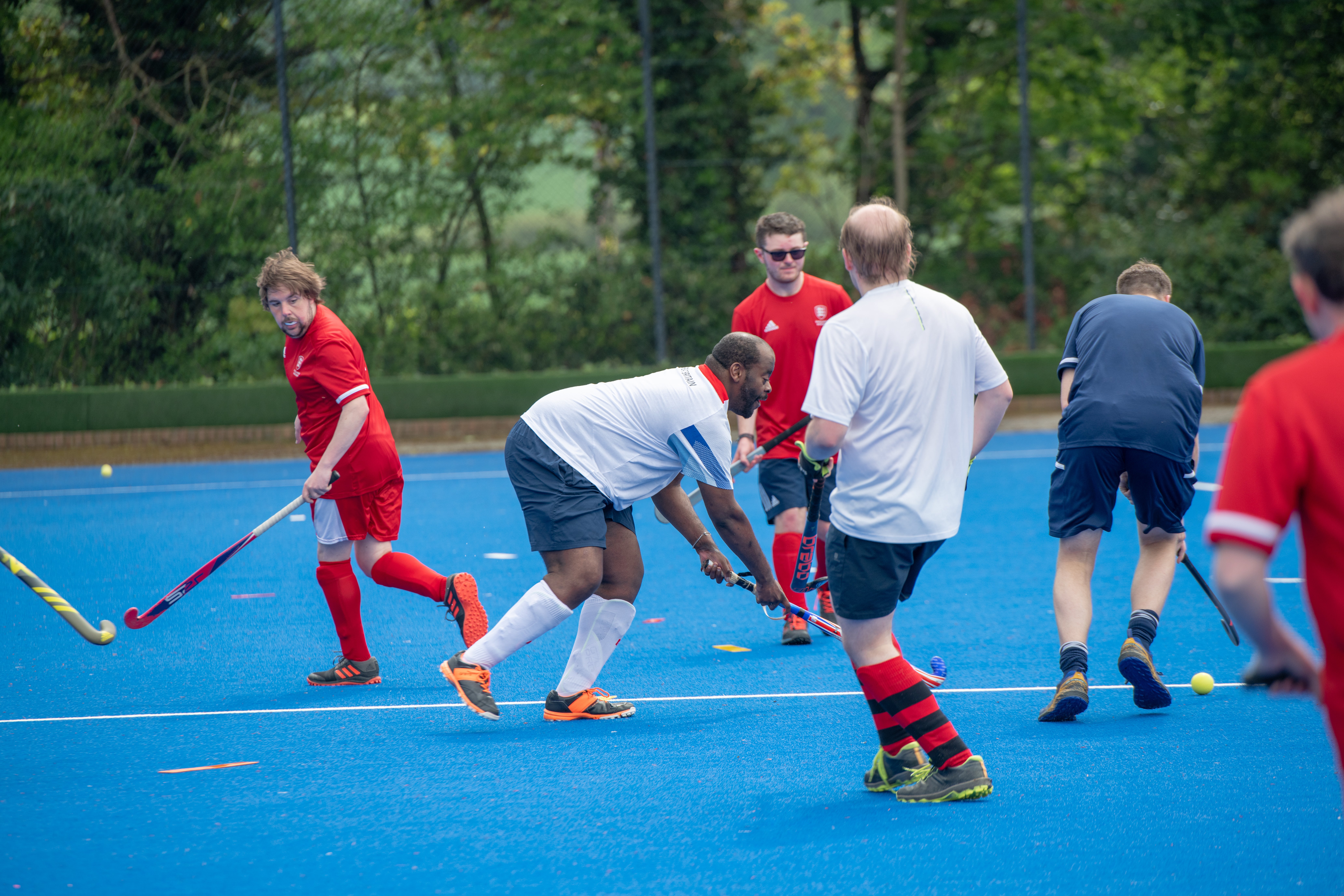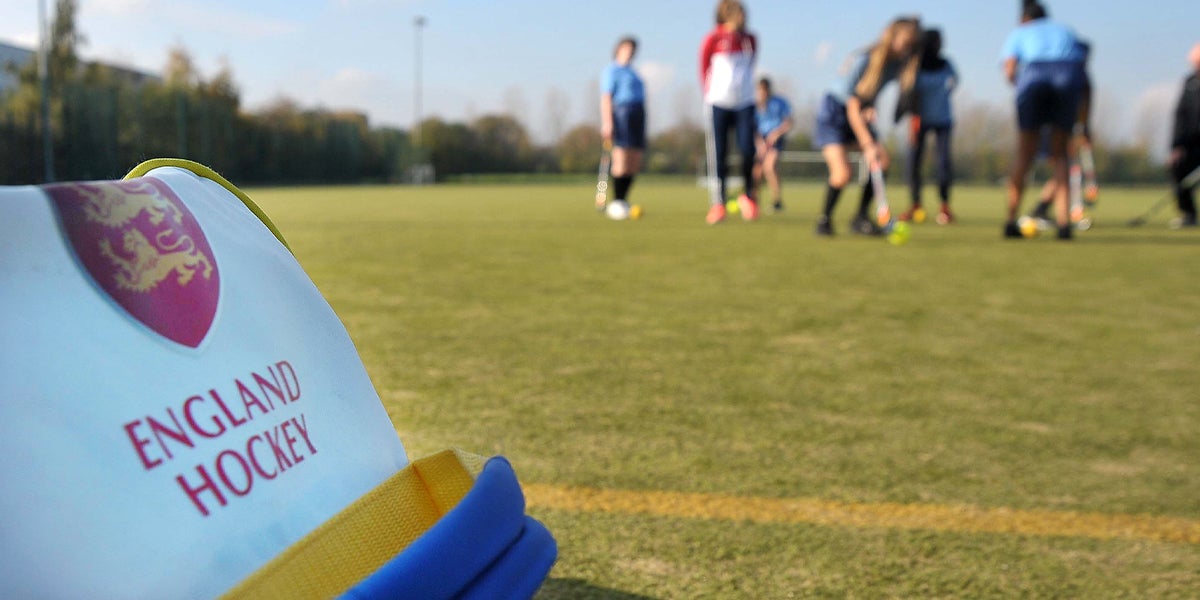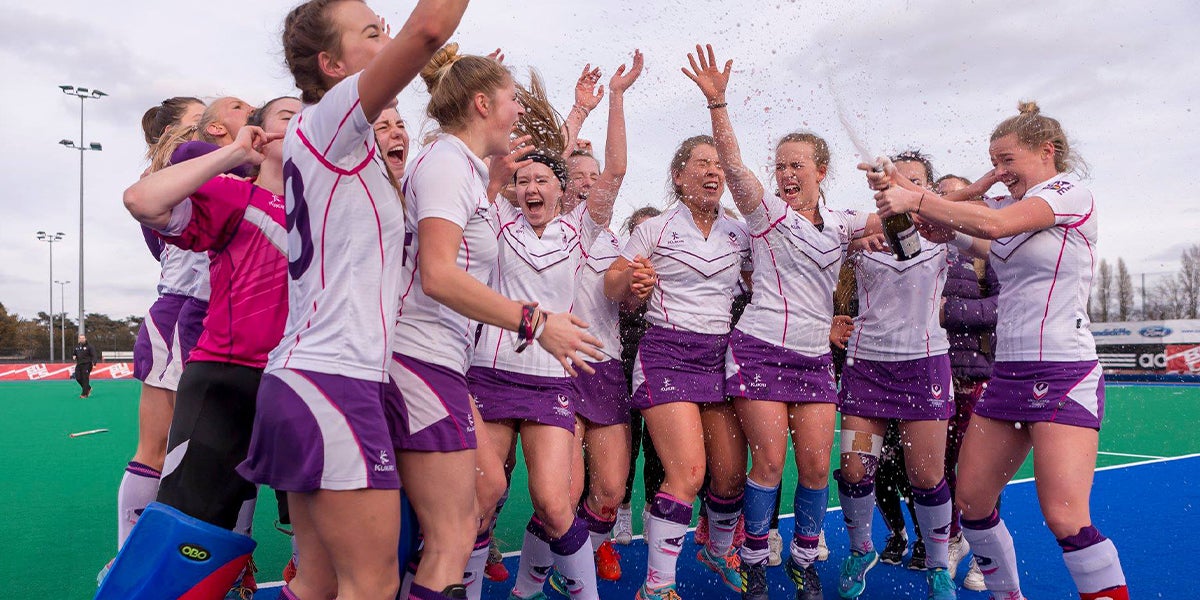England Hockey is committed to creating and maintaining a safe and positive environment and accepts the responsibility to safeguard the welfare of all adults involved in hockey. Like with young people, it is not always easy to see the signs of when an adult is being abused. All hockey clubs have a duty of care to anyone who is deemed to be vulnerable, which can include adults.
Who is an Adult at Risk?
Under the Care Act 2014, Local Authorities, the Police, and Health Services have a legal duty to provide additional protection to adults at risk of abuse or neglect. England Hockey recognises and supports these responsibilities and works in line with this legislation.
An Adult at Risk is defined as someone who is aged 18 or over and:
- Has needs for care and support (whether or not these needs are being met by the local authority)
- Is experiencing, or is at risk of, abuse or neglect
- As a result of their care and support needs, is unable to protect themselves from the risk of, or experience of, abuse or neglect
England Hockey is committed to recognising when someone may be an adult at risk and responding appropriately to ensure their safety and wellbeing.
England Hockey is committed to creating and maintaining a safe and positive environment and accepts the responsibility to safeguard the welfare of all adults involved in hockey. Like with young people, it is not always easy to see the signs of when an adult is being abused. All hockey clubs have a duty of care to anyone who is deemed to be vulnerable, which can include adults.
Who is an Adult at Risk?
Under the Care Act 2014, Local Authorities, the Police, and Health Services have a legal duty to provide additional protection to adults at risk of abuse or neglect. England Hockey recognises and supports these responsibilities and works in line with this legislation.
An Adult at Risk is defined as someone who is aged 18 or over and:
- Has needs for care and support (whether or not these needs are being met by the local authority)
- Is experiencing, or is at risk of, abuse or neglect
- As a result of their care and support needs, is unable to protect themselves from the risk of, or experience of, abuse or neglect
England Hockey is committed to recognising when someone may be an adult at risk and responding appropriately to ensure their safety and wellbeing.
-
The Safeguarding Adults Policy, along with its supporting Policy Procedure document, is designed to inform and guide everyone involved in our sport on all aspects of adult safeguarding. It outlines how to recognise and respond to concerns, and sets out the roles and responsibilities for those across the hockey community.
England Hockey encourages all clubs, members, and participants to adopt, implement, and promote this policy and procedure within their environments.
England Hockey believes that everyone — including participants, staff, and volunteers — has the right to feel safe, respected, and supported while taking part in hockey. We are committed to fostering a positive culture where safeguarding concerns are recognised, responded to appropriately, and where the rights, wishes, and dignity of adults are respected.
Any action taken by England Hockey will reflect the core principles of adult safeguarding: it will be prompt, proportionate, and will include and respect the voice of the adult concerned.
Where necessary, England Hockey will take appropriate disciplinary action in line with our Disciplinary Regulations, Spirit of Hockey - Codes of Conduct, and this Safeguarding Adults Policy where a breach by members, staff, or connected participants is alleged.
-
England Hockey strongly recommends that clubs have a safeguarding adults policy that is separate to their safeguarding children policy. This is recommended for several reasons:
- Adults and children can face different sets of issues to each other.
- Definitions and terms used in adult and child safeguarding can differ from each other.
- Reporting procedures and case handling are different.
- There is different legislation and policy for child and adult safeguarding.
- Adults have the right to self-determinate (choose whether they wish to receive help) whereas children do not.
Buddle, have some great resources and information on their website.
If your club or area wants advice or guidance about creating a safeguarding adults at risk policy, please contact Alison Hogg, Ethics and Welfare Manager, whose details can be found on the useful contacts page.
-
This depends on your role and whether you are working in regulated activity with adults at risk. The criteria for needing an adult DBS check is different to those for children and it is highly unlikely that anyone involved in hockey will meet them. To qualify for an enhanced adult DBS check with an adult barred list check included, you will need to be doing one of the following activities in regulated activity:
- You are providing healthcare to an adult at risk (Only including first aid when it is performed on behalf of an organisation.
- You are providing personal care to an adult at risk (e.g. helping with eating/drinking, washing, dressing, oral/skin care)
- You are providing social work for an adult at risk.
- You are assisting with the general household matters of an adult at risk (e.g. managing a person’s money, doing their shopping)
- You are helping to conduct the affairs of an adult at risk (e.g. you have the power of attorney under the Mental Capacity Act 2005)
- You are transporting an adult at risk (Only applies to making trips for healthcare, personal care and social work. Drivers for trips that do not meet these criteria do not require a DBS check)
Those who are performing training, teaching, assistance, advice or guidance roles for adults that are receiving health or social care will usually not meet the requirements for regulated activity and therefore will not be required to get an Enhanced DBS Check. However, people in these roles may still qualify for an Enhanced Check without the adult barred list check if they are in an environment where most of the participants are receiving health or social care and meets one of the following criteria:
- The activity they perform occurs more than three days in any period of 30 days.
- It involves staying overnight with an adult at risk.
- The activity they perform occurs at least once a week on an ongoing basis.
Even if a person does not meet the requirement for a DBS check, it is still important that any organisation performs a thorough recruitment process and have thought about whether someone is suitable for the role that they are undertaking.
For more information about DBS Checks for working with adults at risk in sport, please consult the Disclosure and Barring Service’s guidance leaflet.
-
The Safeguarding Adults Policy, along with its supporting Policy Procedure document, is designed to inform and guide everyone involved in our sport on all aspects of adult safeguarding. It outlines how to recognise and respond to concerns, and sets out the roles and responsibilities for those across the hockey community.
England Hockey encourages all clubs, members, and participants to adopt, implement, and promote this policy and procedure within their environments.
England Hockey believes that everyone — including participants, staff, and volunteers — has the right to feel safe, respected, and supported while taking part in hockey. We are committed to fostering a positive culture where safeguarding concerns are recognised, responded to appropriately, and where the rights, wishes, and dignity of adults are respected.
Any action taken by England Hockey will reflect the core principles of adult safeguarding: it will be prompt, proportionate, and will include and respect the voice of the adult concerned.
Where necessary, England Hockey will take appropriate disciplinary action in line with our Disciplinary Regulations, Spirit of Hockey - Codes of Conduct, and this Safeguarding Adults Policy where a breach by members, staff, or connected participants is alleged.
-
England Hockey strongly recommends that clubs have a safeguarding adults policy that is separate to their safeguarding children policy. This is recommended for several reasons:
- Adults and children can face different sets of issues to each other.
- Definitions and terms used in adult and child safeguarding can differ from each other.
- Reporting procedures and case handling are different.
- There is different legislation and policy for child and adult safeguarding.
- Adults have the right to self-determinate (choose whether they wish to receive help) whereas children do not.
Buddle, have some great resources and information on their website.
If your club or area wants advice or guidance about creating a safeguarding adults at risk policy, please contact Alison Hogg, Ethics and Welfare Manager, whose details can be found on the useful contacts page.
-
This depends on your role and whether you are working in regulated activity with adults at risk. The criteria for needing an adult DBS check is different to those for children and it is highly unlikely that anyone involved in hockey will meet them. To qualify for an enhanced adult DBS check with an adult barred list check included, you will need to be doing one of the following activities in regulated activity:
- You are providing healthcare to an adult at risk (Only including first aid when it is performed on behalf of an organisation.
- You are providing personal care to an adult at risk (e.g. helping with eating/drinking, washing, dressing, oral/skin care)
- You are providing social work for an adult at risk.
- You are assisting with the general household matters of an adult at risk (e.g. managing a person’s money, doing their shopping)
- You are helping to conduct the affairs of an adult at risk (e.g. you have the power of attorney under the Mental Capacity Act 2005)
- You are transporting an adult at risk (Only applies to making trips for healthcare, personal care and social work. Drivers for trips that do not meet these criteria do not require a DBS check)
Those who are performing training, teaching, assistance, advice or guidance roles for adults that are receiving health or social care will usually not meet the requirements for regulated activity and therefore will not be required to get an Enhanced DBS Check. However, people in these roles may still qualify for an Enhanced Check without the adult barred list check if they are in an environment where most of the participants are receiving health or social care and meets one of the following criteria:
- The activity they perform occurs more than three days in any period of 30 days.
- It involves staying overnight with an adult at risk.
- The activity they perform occurs at least once a week on an ongoing basis.
Even if a person does not meet the requirement for a DBS check, it is still important that any organisation performs a thorough recruitment process and have thought about whether someone is suitable for the role that they are undertaking.
For more information about DBS Checks for working with adults at risk in sport, please consult the Disclosure and Barring Service’s guidance leaflet.



